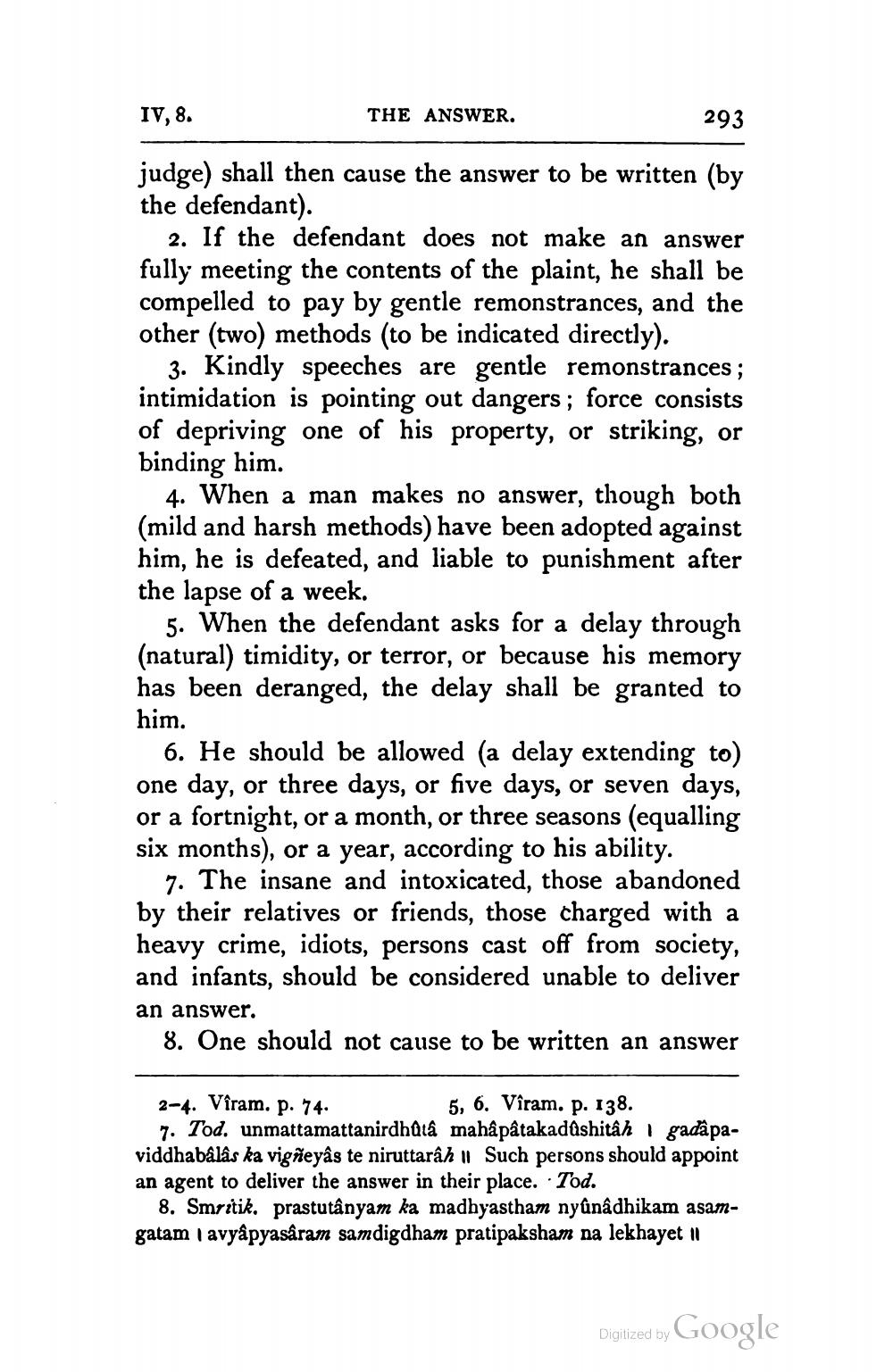________________
IV, 8.
THE ANSWER.
293
judge) shall then cause the answer to be written (by the defendant).
2. If the defendant does not make an answer fully meeting the contents of the plaint, he shall be compelled to pay by gentle remonstrances, and the other (two) methods (to be indicated directly).
3. Kindly speeches are gentle remonstrances; intimidation is pointing out dangers; force consists of depriving one of his property, or striking, or binding him.
4. When a man makes no answer, though both (mild and harsh methods) have been adopted against him, he is defeated, and liable to punishment after the lapse of a week.
5. When the defendant asks for a delay through (natural) timidity, or terror, or because his memory has been deranged, the delay shall be granted to him.
6. He should be allowed (a delay extending to) one day, or three days, or five days, or seven days, or a fortnight, or a month, or three seasons (equalling six months), or a year, according to his ability.
7. The insane and intoxicated, those abandoned by their relatives or friends, those charged with a heavy crime, idiots, persons cast off from society, and infants, should be considered unable to deliver an answer.
8. One should not cause to be written an answer
2-4. Vîram. p. 74.
5. 6. Vîram. p. 138. 7. Tod. unmattamattanirdh@ta mahâpâtakadashitah 1 gadàpaviddhabålâs ka vigñeyâs te niruttarâh || Such persons should appoint an agent to deliver the answer in their place. Tod.
8. Smritik, prastutânyam ka madhyastham nyûnâdhikam asamgatam | avyâpyasaram samdigdham pratipaksham na lekhayet 11
Digitized by Google




